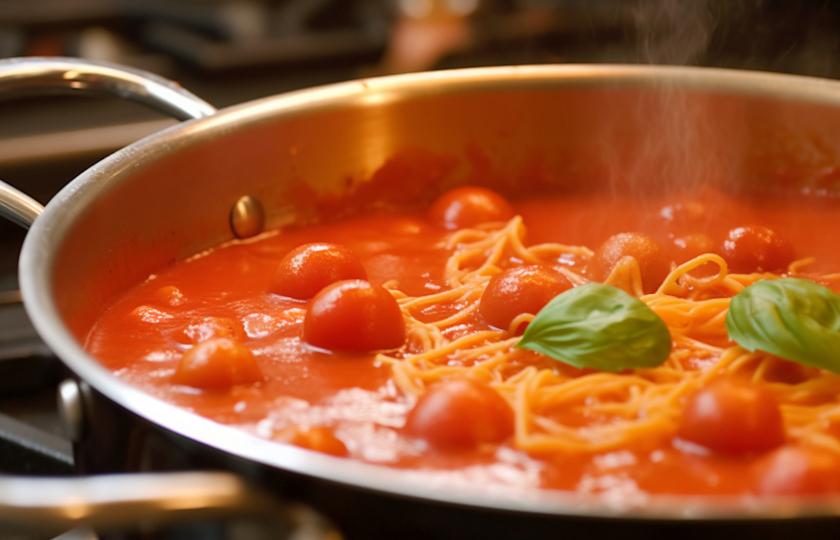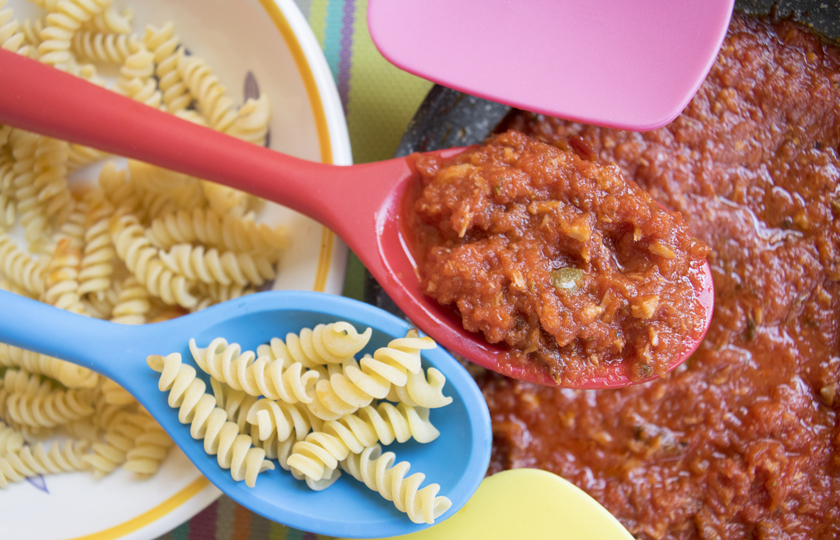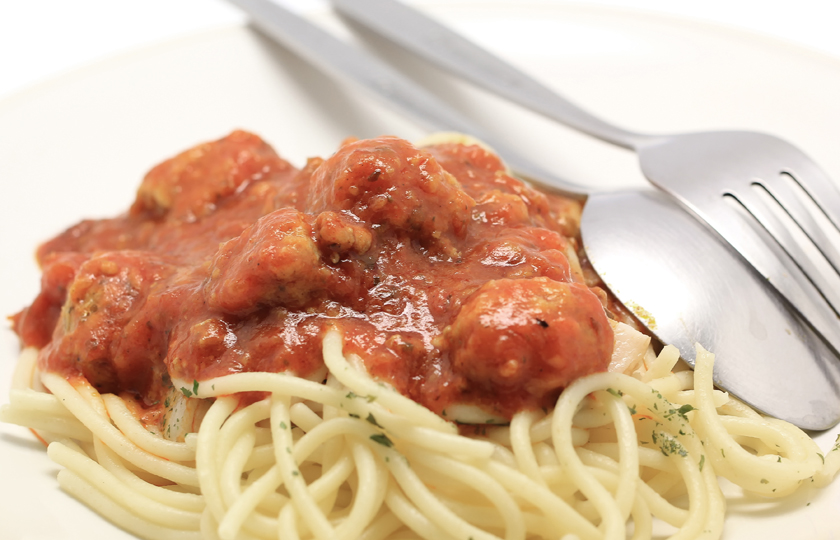Culinary Hint: Can You Leave Cooked Pasta Sauce Out Overnight?

Hey Food Lovers! Have you ever found yourself in a situation like this: you make a big pot of delicious pasta sauce in the evening, but you can’t finish it all, and then you start wondering, “Can I leave the cooked pasta sauce out overnight? Will it still be good to enjoy tomorrow?” Don’t worry! Today, we’re going to talk about this topic and add a new kitchen skill to your repertoire.
Can cooked pasta sauce be left out overnight?
First off, cooked pasta sauce can be left out overnight, but you need to pay attention to how you store it and for how long! If stored properly, you can use it the next day to toss with pasta or pair with other ingredients, and it will still taste great!
Here are some storage tips:
Seal It Up: Pour the cooked pasta sauce into a clean glass or ceramic container, and make sure to seal it tightly! This helps prevent air from getting in and reduces the chance of bacterial growth.
Refrigerate: Place the sealed pasta sauce in the refrigerator, keeping the temperature at or below 40°F (4°C). This slows down bacterial growth and extends its shelf life.
Eat It Soon: Although it can be stored overnight, for the best flavor and food safety, it’s recommended to eat it as soon as possible. If you need to store it for longer, consider freezing it!
How long can pasta sauce stay out after cooking?
Generally speaking, the storage time for cooked pasta sauce depends on factors like how it’s stored and the temperature.
If you seal the cooked pasta sauce properly and store it in the refrigerator (at or below 40°F or 4°C), it can typically last for 3 to 5 days. However, it’s best to consume it within 3 days to maintain optimal flavor and freshness. While refrigeration slows down bacterial growth, it doesn’t completely stop it.
If you want to store it for a longer period, consider freezing it. Divide the cooked pasta sauce into smaller portions, seal them well, and place them in the freezer (at or below -18°C or 0°F). It can last for 2 to 3 months. Just keep in mind that the texture and flavor of the sauce may change after freezing, and it’s not advisable to refreeze it.
Tip: When storing pasta sauce, make sure to use clean containers and ensure they are well-sealed. Additionally, always reheat the sauce to a boil before consuming to ensure food safety!

Do you need to seal the pasta sauce when storing it?
When storing pasta sauce, it’s essential to seal it properly. There are several important benefits to sealing:
Prevents Air Exposure: Sealing effectively keeps air from coming into direct contact with the pasta sauce, reducing the risk of oxidation and spoilage.
Reduces Bacterial Growth: A sealed environment minimizes the chances of outside bacteria entering the sauce, helping to extend its shelf life.
Preserves Flavor: Proper sealing locks in the aroma and taste of the pasta sauce, ensuring it remains delicious when you’re ready to enjoy it.
Therefore, whether you’re refrigerating or freezing pasta sauce, always use clean containers and ensure they are well-sealed. Additionally, pay attention to storage temperatures and expiration dates to ensure food safety and the best flavor.
How to tell if pasta sauce has gone bad?
First, check the appearance. A normal sauce should have its original color and a uniform texture. If the sauce has changed color—becoming dull, dark, or developing unusual spots—it may be a sign of spoilage. For example, fresh tomato sauce is bright red; if it turns dark red or even brown, that’s a red flag. Additionally, the texture is important to observe. If the sauce has become thick, formed clumps, or shows separation (like oil separating from the sauce), it likely indicates that the sauce has spoiled. It’s as if the internal structure of the sauce has been compromised, preventing it from maintaining its original uniformity.
Next, smell it. Fresh sauce will have its characteristic aroma—like a meat sauce with a rich meaty and spiced scent, or a cream sauce with a rich dairy smell. If the sauce has gone bad, it may emit unpleasant odors, such as sour, rotten, or sharp chemical smells. This occurs because microorganisms proliferate in the sauce, breaking down its components and producing these undesirable odors.
Finally, taste it. However, this method should be used cautiously. If you already have doubts about the sauce's appearance and smell, you can take a small taste to assess it. If the sauce has a sour, bitter, or otherwise strange flavor, rather than its original delicious taste, it has likely spoiled. Spoiled sauce has undergone chemical changes, which also alters its flavor.

Do you heat up the pasta sauce?
Pasta sauce definitely needs to be heated. While you can eat pasta sauce straight from the jar without heating it, the flavor will be somewhat lacking. Heating the pasta sauce enhances its aroma and texture, making it pair much better with the pasta.
If the pasta sauce has been taken out of the refrigerator or freezer, it’s best to heat it up. Pasta sauce that comes straight from the fridge is cold, and eating it without heating can affect the taste, making the pasta feel chilly. Heating the sauce restores its original consistency, allowing it to blend more effectively with the noodles. For sauce that has been frozen, heating is an essential step because freezing can harden the sauce's texture. Only by heating can it become soft and smooth again, releasing its delicious aroma.
How to Heat Pasta Sauce?
First of all, if you want to heat pasta sauce quickly, the microwave is a great option! Just pour the pasta sauce into a microwave-safe container, lightly cover it (making sure to leave a small vent), and set it for an appropriate time—like 30 seconds to 1 minute. The exact time will depend on the amount of sauce and the power of your microwave. After heating, remember to stir the sauce with a spoon to ensure even heating.
Of course, if you prefer a more traditional method, heating it on the stove is also a good choice. Pour the pasta sauce into a pot and heat it slowly over medium-low heat, stirring constantly to prevent it from sticking to the bottom.
Regardless of which heating method you choose, keep an eye on the sauce as it heats to avoid overheating or burning. Also, be sure to consume the heated sauce promptly to maintain its taste and flavor, as letting it sit too long can degrade its quality.























